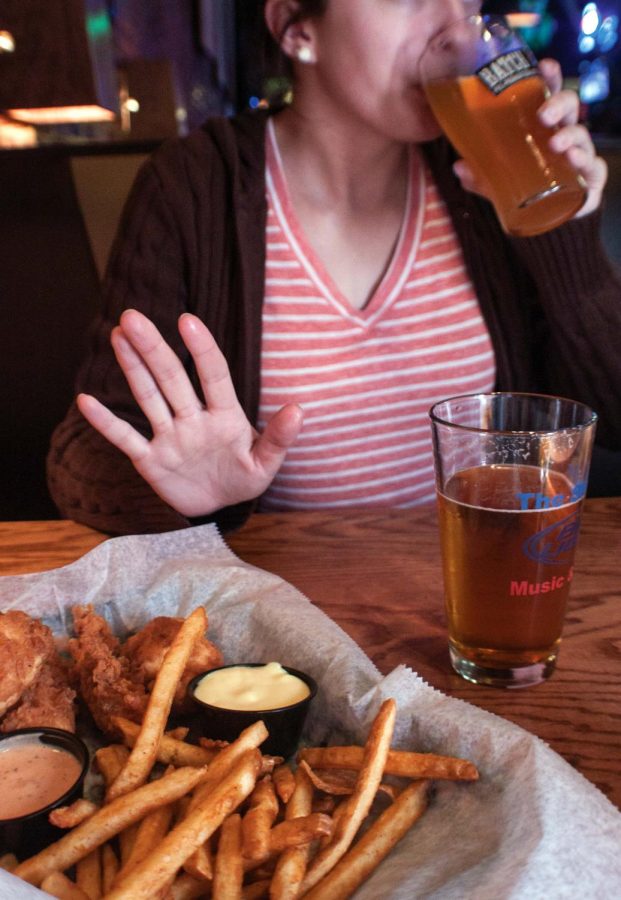Drunkorexia
March 14, 2013
The pressure to remain thin can be much harder while trying to consume alcohol, which is why many students take part in risky behaviors such as not eating before drinking alcohol. This is commonly termed “drunkorexia” by professionals.
According to Recovery.org, drunkorexia is a mixture of alcoholism and anorexia nervosa. UNA Health Service Director Jennifer Berry said, however, that it may still not be a necessarily diagnosable eating disorder.
“While these behaviors are harmful because of the effects of alcohol on an empty stomach, restricting caloric intake to replace with alcohol does not necessarily constitute a diagnosis of an eating disorder but possibly a substance abuse problem,” she said via email.
Students feel that this behavior is no substitute for a proper diet and exercise routine.
Whitney Stephenson said calories aren’t the only things that someone trying to lose weight should be concerned with.
“You have to look at protein, carbs, sugars and exercise,” she said. “By not eating before drinking, you aren’t doing anything for yourself.”
She went on to mention the uncertainty in how many calories are in the alcoholic beverages someone might consume.
“You never exactly tell how many calories are in drinks, because it all depends on what brands bars use and the juices in the drinks,” Stephenson said.
If students are dieting there isn’t a reason to believe that alcohol consumption is forbidden. Dylan Tucker said even though he tries to maintain a healthy lifestyle, he still enjoys a few good drinks without getting “black-out” drunk.
“If someone isn’t hungover that next day, the calories from drinking can be ran off in the gym,” Tucker said.
Director of University Health Services Kyrel Buchanan said eating before drinking helps slow the absorption of alcohol through the stomach’s lining.
“Before going to a party or bar where you are going to consume alcohol, experts advise eating a hearty meal,” she said via email. “You might also want to eat throughout the night to slow intoxication.”
Slowing the intoxication process may actually be one reason students are not deciding against eating. If drinking on an empty stomach can increase the rate in which someone becomes intoxicated, there is less money spent on alcohol as well as fewer calories absorbed.
Kendra Hammond said she does not see a problem with this behavior, as long it doesn’t become a habit leading to an eating disorder.
“No matter how much someone eats or doesn’t eat, they should be aware of their alcohol tolerance,” Hammond said.
Buchanan said drinking on an empty stomach also increases the chances for a hangover.
“In general there are specific healthy guidelines adults 21 and over should follow regarding alcohol use,” Berry said.












